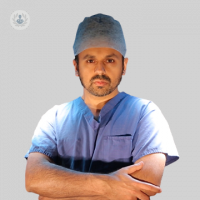Is glaucoma surgery dangerous?
Autore:Glaucoma is a condition wherein essence the pressure in the eyeball increases due to a blockage in the eye’s natural drainage pathway. The increased pressure causes stress on the optic nerve which connects the eye to the brain (enabling sight). This damages the optic nerve and can result in total blindness.

How is glaucoma surgery done?
Once eye drops and laser treatments are no longer effective. Surgery is required to prevent further damage to the optic nerve. Traditional glaucoma surgery involves creating a flap valve under the upper eye-lid fashioned from the tissues of the eye. It often requires a general anaesthetic and prolonged follow-up at the hospital to ensure that the surgery does not scar. Overall it is an effective operation but does carry some risk. The other procedure used in more complex glaucomas is tube shunt surgery where an implant connects to a tube and drains the fluid out of the eye.
Is glaucoma surgery dangerous?
Although traditional glaucoma surgery is not dangerous it does require attention to detail and significant experience to get right and ensure that the surgery works first time without complications. The risk of serious complications is of the order of 1% but at least 10% of patients require further manipulation or intervention after the first operation to ensure success.
What is minimally invasive glaucoma surgery?
Minimally Invasive Glaucoma Surgery (MIGS) is a novel class of glaucoma surgery that is characterised by; a quick procedure which is minimally traumatic to the tissues of the eye with rapid recovery of vision following surgery. There are multiple procedures available in this category and correct patient selection is key to success.
The safest procedures are those that target Schlemm’s canal (the eye natural drainage channels). The IStent, Trabectome, Kahook blade and GATT procedure currently fall into this category. The Cypass stent targets the supra-choroidal space (a low-pressure space within the eye) and early data suggest that it can be effective.
The Xen shunt mimics a minimally invasive trabeculectomy and shunts fluid into space under the upper lid but without the extensive cutting required for a trabeculectomy.
All these procedures require significant experience to get right and are not suitable for all patients. In the right hands and with careful patient selection they can give a good result.
What to expect after glaucoma surgery
The post-operative care after glaucoma surgery is variable depending on the nature of the operation. MIGS procedures, in general, needless post-op intervention than conventional operations but a period of 3-4 weeks is needed to get things working and it is recommended that this period is taken lightly. Post-operative eye drops need to be taken frequently in the early period and care should be taken to follow all instructions. The vision can be a little blurred for the first few weeks after surgery but gradually settles. This is particularly the case with trabeculectomy or tube shunt surgery. The eye, of course, will feel a little sore and irritated but this will settle over 2-3 weeks.


